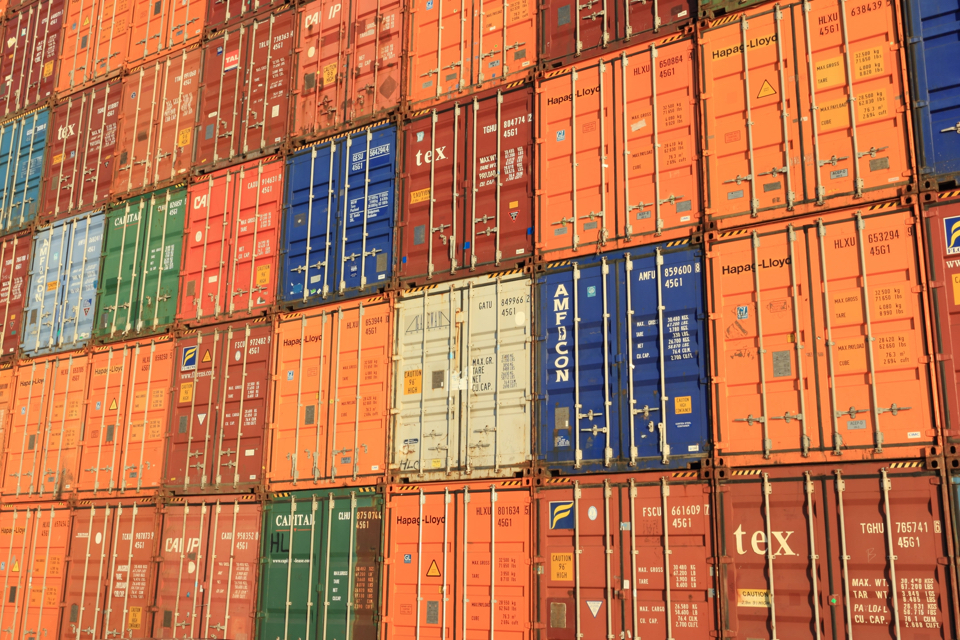The Dockers’ Clause, which regulates that the lashing of containers on ships moored in the port must be done by dock workers, complies with all European regulations. The International Transport Workers’ Federation (ITF) states this in response to a group of six shipping companies filing a complaint against the international trade union with the European Commission.
According to law firm AKD, which represents the six, the clause is a violation of the ban on cartels and a restriction of the freedom to provide services.
The union claims that the complainants have so far refused to share the content of the complaint and therefore says that it is unable to comment on the substance. The ITF believes that this is a ‘tactical response’ to lawsuits brought by the ITF and its member associations, FNV Havens, Nautilus NL and German ver.di, against shipping companies that do not comply with the Dockers Clause. At the beginning of July, for example, a first case was filed in Rotterdam concerning the 800 TEU container ship Expert belonging to Dutch JR Shipping.
‘No complaint seen’
Director Niek Stam of FNV Havens even wonders whether a complaint has been filed at all. ‘In any case, we haven’t seen anything and our lawyers don’t know anything about it. It’s also strange that that complaint should have been filed against us, because normally these kinds of complaints are filed against member states,’ he says.
He calls companies that don’t want to stick to the clause ‘whiners’. According to him, the agreement to tie up and unhook containers on ships in ports was reached two years ago between the ITF and the so-called Joint Negotiating Group (JNG) of maritime employers, representing some 15,000 ships. ‘Those shipping companies just have to stick to it, period,’ says Stam.
Administrator Sasha Meijer of seafarers’ union Nautilus assumes that the complaint was actually filed, but calls the case ‘shady’. ‘We don’t know which six companies are involved and our lawyer won’t have access to the documents if asked. That’s very unusual,’ she says.
Two more parties
According to her, two other parties are involved in the case against the Expert: MV Expert as owner of the ship and Marlow Navigation. The latter is one of the largest European manning agencies with its headquarters in Cyprus and a branch office in Rhoon, the Netherlands. The group employs some 13,000 seafarers on more than a 1000 ships.
Meijer points out that Marlow is a member of the International Maritime Employers’ Council (IMEC), which is also evident from the website of that maritime employers’ club. It is part of the Joint Negotiating Group, which the Dockers Clause agreed to in 2018. ‘So they can’t say that that clause doesn’t apply to them. What’s more, they’ve been able to adapt over the past two years, so there’s no reason why they shouldn’t stick to it,’ says Meijer.
The Dockers’ Clause is officially called the Non-Seafarers’ Work Clause and is part of an international collective bargaining agreement between JNG and ITF. Its main purpose is to prevent ‘sailing lashing’, the fastening and loosening of containers by the crew when the ship is not yet secured. But according to Meijer, the ban also applies if the ship is moored at the quay. ‘Sailor’s work is hard work and the crew should have peace of mind when the ship is in port. That’s why that work must also be done in the port by dock workers,’ she says.
Disruptive
Director Sander Schakelaar of JR Shipping in Harlingen confirms that a case has been filed against his company. But according to him, the full application of the Dockers’ Clause for the European feeder sector would ‘have a disruptive effect’.
According to him, the crews of these ships throughout Europe have been doing the lashing themselves for decades, with a limit of ships up to 170 metres in the ports of Rotterdam. He argues that lashing work on board small feeder and short sea vessels is fundamentally different in nature from that on the enormous deep sea vessels.
Schakelaar: ‘If the lashing suddenly had to be done by shifts of dock workers, this would lead to serious delays and much higher costs. Feeder traffic would get stuck. Moreover, it would be more unsafe because ships have all kinds of different systems, which the dock workers are not at all familiar with.’
On top of that, according to him, the ships want to have as few outsiders on board as possible at the moment because of the corona crisis. Whether JR is one of the six complainants, he cannot say ‘because the subject is not very high on the agenda because of the corona crisis.’
This article first appeared in Dutch on Nieuwsblad Transport, a publication of SWZ|Maritime’s publishing partner Promedia.
Related news:
- Shortsea and feeder ship operators take lashing complaint to the EC








